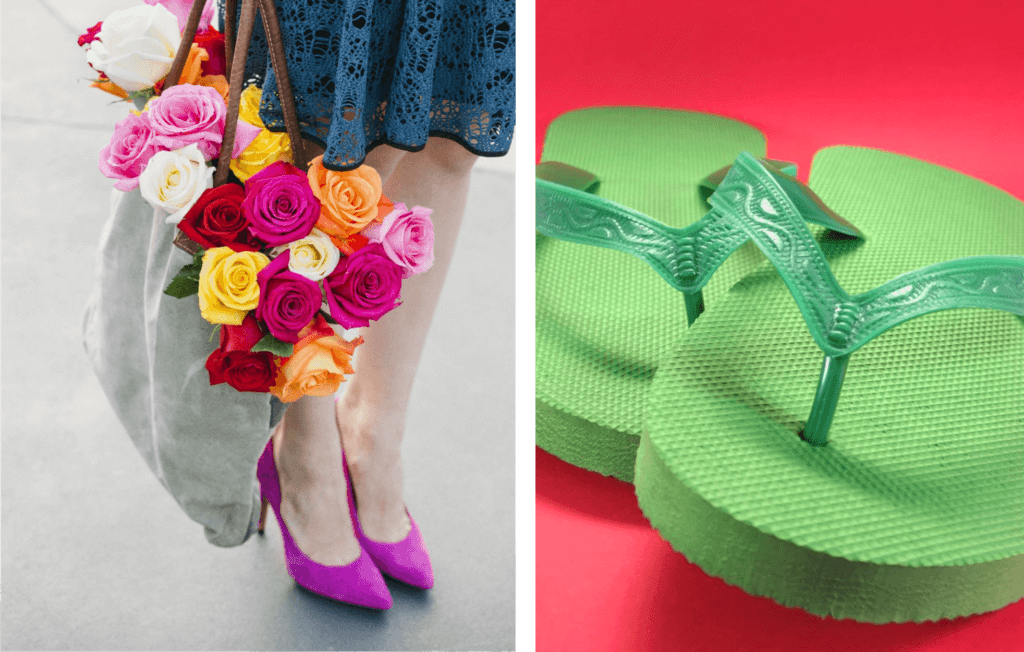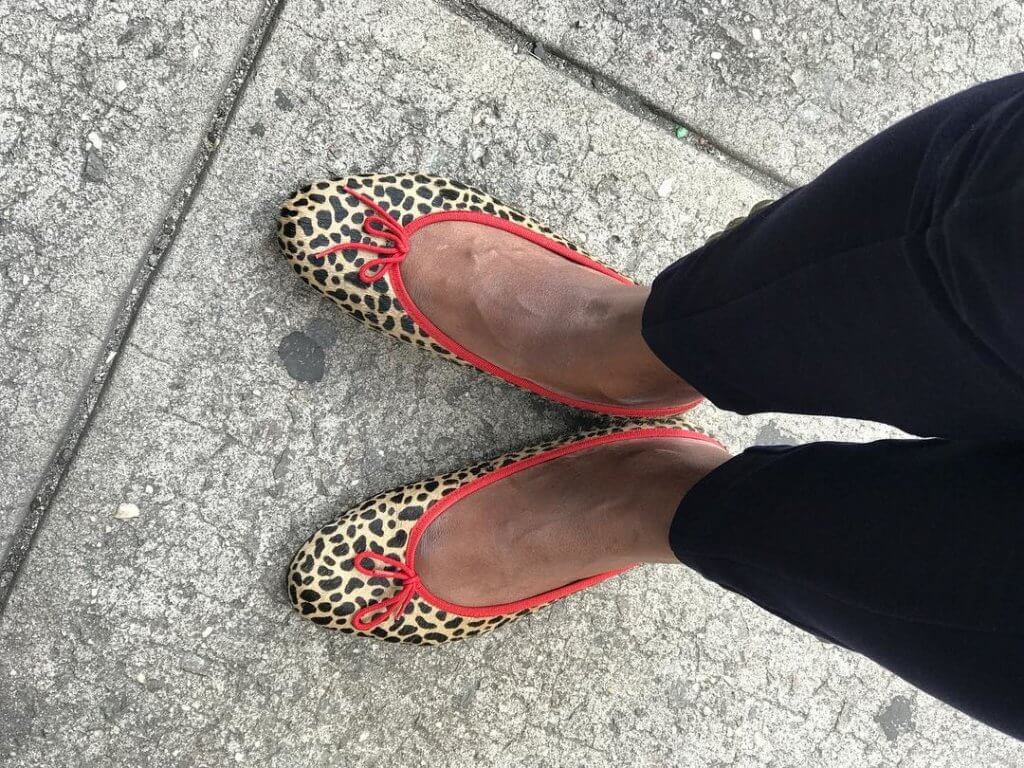Many women (and some men) are slaves to fashion, as they say. But are your clothes dangerous to your health? Mitch Kaye, PT, PTPN’s Director of Quality Assurance, says that many types of clothing, footwear, and even accessories can be harmful for you.
Women have been wearing high heels for years, despite knowing they cause a range of foot and health problems. Mitch says that high heels (defined as pumps with heels of 2 inches or more) can damage your back, knees and feet. They increase your risk for ankle sprains or breaks, as well as falls, and can lead to arthritis, foot deformities, poor posture, plantar fasciitis and balance impairments. Standing in high heels for long periods of time can cause deep vein thrombosis and tight Achilles tendons, and wearing them on a regular basis can cause pain in your ankles, knees, hips, back and neck, and even chronic headaches.

The trend of wearing flip-flops everywhere, not just on the beach, has been affecting both men and women for the last few years. The lack of arch support and foot protection can lead to a number of issues. Mitch points out that without a heel on your shoe, your toes are forced to grip the sole in order to keep the flip-flop on your foot, which overstretches the tissues on the sole of your foot and can cause fatigue, pain and inflammation. In addition, they cause you to change how you walk, taking shorter strides, which can affect your hips, knees and ankles. And he notes that the lack of protection from the elements can even lead to infections and skin boils. (If you don’t believe this, wear flip-flops on the subway and see how dirty your feet are at the end of the day.)
According to Mitch, tight clothing is another issue that can cause a number of health problems. Here are a few:
- Heartburn and acid reflux. The increased abdominal pressure can cause acid from the stomach to squirt back into the esophagus, causing heartburn.
- Yeast infections. For women, tight pants create an ideal environment for yeast to develop and grow, due to the lack of enough airflow.
- Nerve compression. Unyielding clothes can compress nerves and create paresthesia in the back, resulting in numbness and tingling in the legs and feet.
- Fainting. Constrictive clothing, especially around the torso, can restrict breathing and cause someone to faint. (There’s a reason ladies don’t wear corsets anymore!)

- Infertility. In men, body-hugging pants may prove to be harmful to the testicles and can cause infertility.
- Reduced circulation. Snug clothing can slow circulation in the extremities, creating a numbness or tingling sensation.
- Back pain. If pants are too constrictive, and/or are low riding, back pain can develop.
- Headaches and visual problems. Wearing a shirt with a tight collar, or a ties tied too tightly, can decrease circulation to the structures above the neck and lead to headaches and “seeing spots.”
Finally, it may be the last thing you put on before walking out the door, but consider how heavy that purse, handbag or backpack is before you throw it over one shoulder. Mitch says, “Carrying a heavy bag on one shoulder can cause the spine to compensate and curve towards that side, resulting in an imbalanced back.” Be sure to wear both straps of any backpack, and consider wearing a cross-body bag to help distribute the weight more evenly across your back.

Mitch has some final notes for you as you approach your closet every morning:
- If you like to wear tight-fitting clothing, make sure it is not so snug as to be constricting.
- Wear shoes that are comfortable when you are standing and walking. If you plan to wear high heels, bring along an extra pair of flat, comfortable shoes to change into afterwards. Make sure your everyday footwear is supportive and easy to walk in.
- Keep purses, handbags and backpacks as light as possible, and periodically switch the tote from one shoulder to the other.
Thank you to our contributors:

Mitch Kaye, PT, oversees all aspects of clinical review and quality oversight for PTPN, Physiquality’s parent company. Mitch also assists PTPN regional offices with quality assurance program management through ongoing training and support, and he meets with members, physicians and payers as needed for program development and problem resolution.
Paresthesia. Wikipedia.
Beck, Melina. Tight ties, killer heels: Clothes make the fashion victims. Wall Street Journal, February 21, 2012.
Brandt, Michelle. The health risks of high heels. Scope, a publication of the Stanford School of Medicine; January 25, 2012.
Kipp, Katherine. Overloaded backpacks can harm children’s bodies. Southeast Missourian, August 24, 2010.
“woman in a blue dress with pink high heels shoes with assorted roses in a bag happy woman with assorted roses bouquet from ProFlowers in a gray handbag” by ProFlowers.com is licensed under CC BY 2.0.
“flip flops” by Steve A Johnson is licensed under CC BY 2.0.
“#flatsfriday running around, downtown, uptown , east and west sides #nycre Comfortable shoes key. Always love @french_sole #balletflats #sotd #shoes #frenchsole #latergram” by Nicole Beauchamp is licensed under CC BY 2.0.